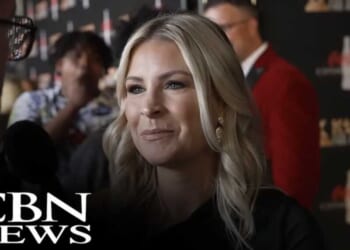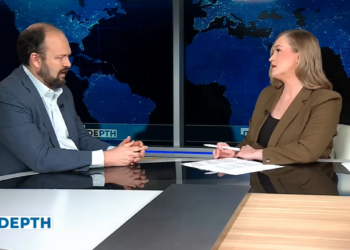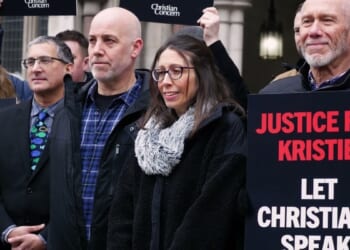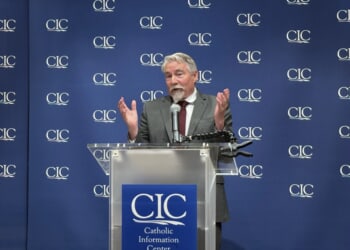Nigel Huddleston, is Co-Chair of the Conservative Party and MP for Droitwich and Evesham.
Following the disappointing local election results on May 1st, Kemi asked me to conduct a review into our performance and identify areas for improvement for elections in 2026.
I convened a working group including members from the Conservative Councillors Association and National Convention. Over six weeks, we held meetings with members, activists, candidates, and councillors to analyse results. Over a thousand party members submitted feedback.
We anticipated these elections being challenging, following our strong 2021 results when many of the seats were last contested. Whilst we had successes like Paul Bristow taking the Peterborough & Cambridgeshire Mayoralty from Labour, overall results were still disappointing.
Despite this, we remain a major force in local government with over 4,000 Conservative councillors delivering better services and lower taxes than other parties. But this is cold comfort to the committed Conservative councillors who lost their seats in May through no fault of their own.
The local elections showed the public remains angry with us and feel let down by Labour. They are cynical and suspicious of what the traditional parties have to offer. Voters wanted to send both main parties a message, many going with Reform, and to a lesser extent Lib Dems and Greens. Many voters stayed at home, demotivated, while others were motivated to vote on national issues like immigration. These national issues focus was exploited by Reform and resonated - despite having nothing to do with local council or Mayoral remits.
As a result, even long-serving, highly visible and popular councillors in well-run Conservative councils lost their seats. There were weaknesses and areas for improvement, which I’ll address. But I’d like to highlight some positive campaign aspects first.
Hard-working Conservative activists collected hundreds of thousands of voting intentions in a campaign that started soon after last year’s general election. This data will be essential both to our campaign in 2026 and to our long-term political recovery. Despite uncertainty over Labour’s local government reforms, most councillors continued to campaign over the winter. The quantity and quality of campaign literature was generally significantly higher than in previous elections.
Social media activity was also higher, though it still requires major improvement compared to some of our political opponents. We had more candidates with a decent digital presence and more activists trained in digital advertising than ever before – but not enough. Members said our national online presence, while improved, still fell short of our opponents.
All stakeholders appreciated support from MPs, former MPs, Shadow Cabinet members and the Party Leader – who visited all counties that held elections. This had the most impact when we notified local activists well in advance and promoted events with local media. While our candidate selection processes received mixed commentary, we fielded candidates in 97% of seats and over 99% of divisions – the highest figure for any party.
Members thought our local messaging was generally better than our opponents. Councillors fed back that where they identified specific campaign issues they were known for and had successfully delivered on, they held on to a higher vote share.
But while we did some things quite well, there are also many areas for improvement which I will now come on to. As not everyone reading this may have our party’s best interests at heart, I cannot divulge every finding and recommendation from the working group. But it’s important to provide feedback to stakeholders, especially those who participated in the review.
Top feedback from members was that 85 per cent believe the public voted primarily on national issues and party brand rather than local candidates and issues. External polling confirms this. While national issues always impact local elections, the extent this year seems larger than previously. As with last year’s general election, most pollsters and internal forecasting under-estimated the Reform vote, or there was a late surge not fully captured by polling or doorstep discussions.
There’s been much debate about mixing local versus national issues and messaging. We focused on pushing a local message based on experienced councillors embedded in communities, delivering good value and services while keeping taxes low. But in many areas, this wasn’t the message the public wanted to hear from us. Some argued we should have taken a purely national angle of ‘give Labour a bloody nose’. But the electorate may have just said ’fine, we will’ and voted Reform or another protest party.
We pushed national messages somewhat, for example by campaigning on Winter Fuel and other national issues but received feedback that while this resonated in some areas, it didn’t necessarily translate into support or votes for us – and simply got people to agree how terrible Labour are. We also needed to balance positive local Conservative success and hard work with negative national Labour failure.
And in many areas, it wasn’t Labour but Reform or the Lib Dems who were our main opponents. One single message won’t always work for us. We need sophisticated and tailored local messaging.
Many stakeholders fed back that we often assumed the electorate knew they had a good Conservative council, run efficiently with low taxes, when many didn’t know or didn’t care. We didn’t always articulate our successes well enough or clearly frame the choice or communicate the jeopardy of non-Conservative controlled councils delivering less for more.
Similar feedback came from Mayoral teams: despite efforts to focus on local issues and promote the experience and quality of our candidates, it was clear that national issues often dominated. Mayoral candidates said earlier selection would have helped fundraising and profile building. Paul Bristow won in Peterborough with a focus on 6 clear policy pledges, framing the choice and dividing the opposition, with extensive use of social media, and by leveraging motivated activists from across the region.
In terms of other key findings, some weaknesses in operations and processes highlighted at the general election were further exposed in these local elections. We know we need to improve: message development; communicating our values and beliefs; deploying and coordinating activists; use of social media, tools, data and insights; and we need to enhance our training programmes and review candidate selection processes and timelines.
This is precisely why Kemi has led our renewal and the reorganising of CCHQ. We are determined that CCHQ will have a focus on the elections in England, Wales and Scotland next year like never before – a focus not as a stepping stone to the next general election but as an important part of the renewal of our Party.
We are building a CCHQ at the top of its game, where innovative campaigning, digital and data will once again ensure that our candidates and activists benefit from the very best research, training and support. John Cope and his team at the CCA are also offering training for councillors and members on everything from VoteSource and fundraising to social media content creation.
Our recommendations to Kemi cover strategic and operational matters. These elections showed the public want to hear more about our principles, beliefs and policies sooner rather than later. Kemi and the Conservatives represent the serious party that voters are looking for as an alternative to this shambolic Labour government. You’ll hear much more at Party Conference.
An action plan to implement recommendations is being developed and I’d like to thank everyone who participated in the review. This article contains just a snapshot of our findings and feedback, but all contributions were gratefully received and will feed into our ongoing renewal process.






![Illegal Alien Walked Free After Decapitating Woman, Abusing Corpse for Weeks [WATCH]](https://www.right2024.com/wp-content/uploads/2025/07/1753013138_Illegal-Alien-Walked-Free-After-Decapitating-Woman-Abusing-Corpse-for-350x250.jpg)








